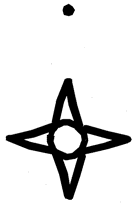Anthropology, Department of

Nebraska Anthropologist
Date of this Version
1997
Document Type
Article
Abstract
The symbiotic relationship between European Christian missionaries and European colonizers in East Africa is well-documented (Opoku 1985:513; Uzukwu 1996:29). However, the colonial history of Rwanda reveals a collaboration between French Roman Catholic missionaries and the coexistent Belgian administration that ensured a profound transformation, not only of indigenous religious practice, but of the marriage pattern - from polygyny to monogamy. The Catholic missionaries in Rwanda, an order called the White Fathers, imported a model of ideal marriage that was an amalgam of Christian theology and their own Western European culture. The model was not immediately embraced by Rwandans and after twenty years, the White Fathers recognized that traditional methods of evangelism and teaching were not resulting in the conversions they had hoped to gain.
The White Fathers, therefore, turned to a decidedly secular forum for aid in enforcing their ideal marriage model: ordinances, taxes, and coercion through the Belgian administration. Rwanda is a small country by African standards at 26,338 square kilometers. It proved a fertile laboratory for the White Fathers' experiment, as their presence and beliefs were not challenged by proselytizers of other religions - such as Protestants, Muslims, and Quakers - as was the case in the rest of East Africa. The Catholic hegemony in Rwanda was a unique situation that enabled the missionaries to remain uncompromising over the issue they envisioned to be at the "very heart" of their endeavour: marriage monogamous and indissoluble (Hastings 1967:163).
This paper examines the dichotomy between the Christian and Rwandan models of marriage, the strategies employed by the White Fathers to impose their beliefs, the Rwandan response to that imposition, and the current marriage pattern in Rwanda.


Comments
Published in Nebraska Anthropologist Vol. 14 (1997-1999). Copyright © Clea Koff; published by The University of Nebraska-Lincoln AnthroGroup.